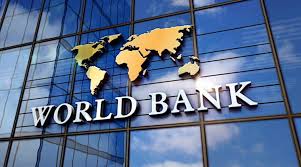The World Bank has issued a stark rebuttal to the Akufo-Addo government’s long-standing justification for Ghana’s 2022 economic collapse, rejecting claims that global shocks like COVID-19 and the Russia-Ukraine war were to blame.
In its 2025 Policy Notes on Ghana, the Bank asserts that the crisis was largely self-inflicted, rooted in domestic mismanagement and structural weaknesses.
“The deterioration of global condition was not the cause of the 2022 macroeconomic crisis; rather, it merely exposed an economy already beset with deep structural vulnerabilities,” the report states.
For years, officials pointed to external disruptions to explain the country’s economic turmoil marked by runaway inflation, currency depreciation, and a sovereign debt default.
But the World Bank paints a different picture: weak governance, fiscal recklessness, and delayed reforms created a fragile foundation that crumbled under pressure.
The report highlights a troubling pattern: Ghana has entered 17 IMF programs since independence, spending 40 of its 68 years under active IMF support. This cycle of overspending followed by painful corrections has become a hallmark of the nation’s economic history.
The fallout has been devastating. Over 800,000 Ghanaians were pushed into poverty, and income per capita has stagnated around US$2,200 for a decade. Today, more than a quarter of the population lives below the poverty line.
The Bank also warns of renewed fiscal excesses in the 2024 election year, citing US$4.8 billion in unbudgeted commitments—5.7% of GDP much of it outside official financial systems. Such spending, it cautions, threatens macroeconomic stability and long-term sustainability.
Chronic inefficiencies persist in key sectors:
– The energy sector drains 2% of GDP annually, with mounting arrears.
– COCOBOD’s debt has ballooned to US$1.8 billion, distorting market incentives and hurting farmers.
The World Bank urges Ghana to break from its past and embrace bold reforms. Its recommendations include:
– Restoring fiscal discipline
– Expanding the tax base
– Reforming state-owned enterprises
– Strengthening governance and public trust
Without decisive action, the Bank warns, Ghana risks remaining trapped in a cycle of crisis and bailout.
“Success will ultimately be measured by the ability of the government to regain the trust of its citizens.”



















